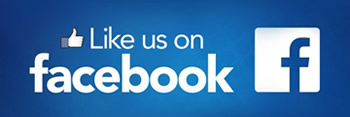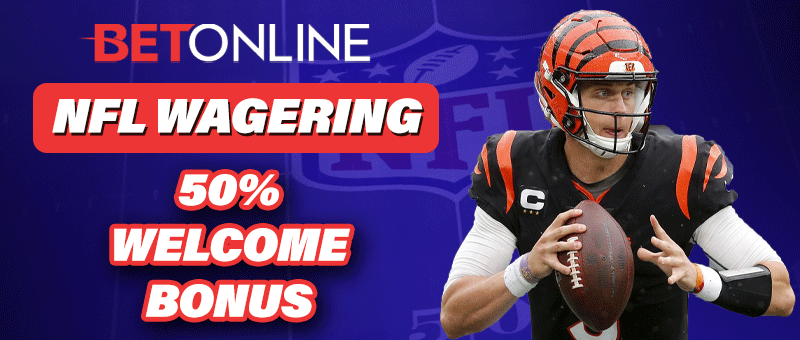Last updated on: January 14th, 2025
Coronavirus And Sports Betting – The Effects Of Covid-19 On Sports Betting
The coronavirus + sports betting clashed in many, having d a massive impact on the world of sports and betting. Its effects on sports were not felt until mid-March. Most major sporting leagues suspended or canceled play to protect their players. The NCAA basketball season stopped in the middle of the most competitive time. From March to around May, the future of sports in 2020 was grim, as the effects of the virus were still unknown.
Luckily, sports were able to find a way to come back to us throughout the year. Leagues like the NBA, MLB, NFL, NCAA Football, NHL, MLS, and more were able to return to play. As the world continues with the pandemic, sportsbooks returned to some normalcy. While things will likely never be the same, even in the darkest times, sports are able to prevail.
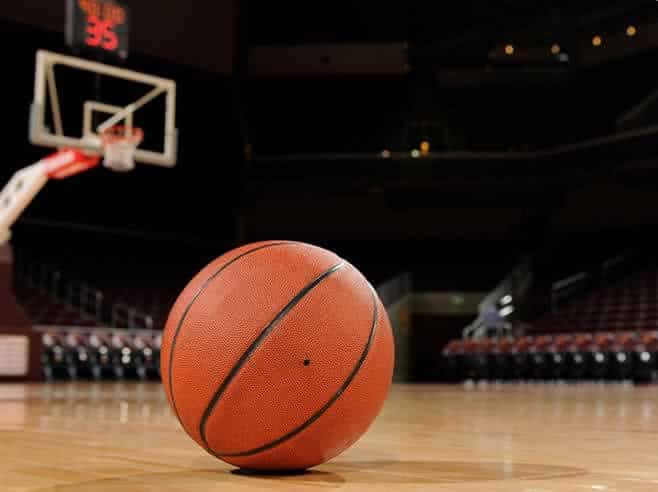
| Rank | Sportsbook | Bonus Offer | Play Now |
|---|---|---|---|
| 1 |  |
Exclusive 50% Bonus Code up to $1000!Read Review | BVD1000 in Cashier |
| 2 |  |
50% Up To $1,000Read Review | Visit BetOnline! |
| 3 |  |
50% Up To $1,000 Read Review | Visit MyBookie! |
| 4 |  |
100% Up To $300Read Review | Visit Xbet! |
| 5 |  |
50% Up To $1,000 Read Review | Visit SportsBetting! |
Sports Betting During The Coronavirus Pandemic
 While most major sporting leagues around the world either canceled or suspended play, sportsbooks turned to alternative methods for legal sports betting to appeal to bettors worldwide. Naturally, socially distant sports like golf, esports, and table tennis, were able to continue operating relatively unabated.
While most major sporting leagues around the world either canceled or suspended play, sportsbooks turned to alternative methods for legal sports betting to appeal to bettors worldwide. Naturally, socially distant sports like golf, esports, and table tennis, were able to continue operating relatively unabated.
Legal online sportsbooks for US players also embraced new betting options, including betting on the weather and video game sports simulations, to keep hardcore bettors entertained and to maintain at least some streams of revenue. Some of the most popular things to bet on during the pandemic included:
Weather – Bet on the over/under of temperature highs and lows in various major cities like Chicago, New York, Toronto, Phoenix, and more.
Sports Simulations – Bet on the money line, the spread, and the over/under on realistic simulations of real-life sporting matchups. These simulations are conducted through popular video game franchises like Madden and NBA 2K.
Virtual Sports – Virtual sports are like a condensed, simulated version of regular sports. Players bet on a fictional game, then a computer simulates that game, displaying the game via computer-generated highlight reels. Virtual sporting sites still offer odds on the frequently run events and each game takes only a few minutes.
Politics – The United States was in a presidential election year, and there are dozens of futures and prop bets available covering all aspects of American politics. Political betting sites also continue to offer odds on elections as they did in 2020 in other countries like Venezuela and Israel.
Stock Market – Dozens of prop bets available in hourly intervals for whether major companies will see their stock price rise or fall. Other interesting market betting options include where the Tesla Cybertruck Gigafactory will be located and the value of the final decimal of each stock market’s daily closing price.
Entertainment – A random assortment of prop bets on pop culture, television, the lottery, and major awards like the Emmys were, and still are offered, at legal entertainment sportsbooks in the US.
The Rise Of Table Tennis During The Covid-19 Pandemic
COVID-19 has had a dreadful impact on the entire world, including the world of sports, but a handful of entities have benefitted financially from a sudden lack of competition. Table tennis isn’t exactly the Premier League, but it has surged in popularity as one of the only remaining daily sports to bet on. Because the table is nine feet long, meaning that competitors never pass within six feet of each other, table tennis leagues in Ukraine and Russia have been able to continue normal operations. Some sportsbooks have begun handling over $100,000 in table tennis bets every day, and one lucky bettor won $9,700 on a 10-way table tennis parlay.
COVID Pushes Sportsbooks To Focus On Betting Apps
The pandemic highlighted the convenience and accessibility of mobile sports betting apps. States like New Jersey and Pennsylvania experienced a surge in online sports betting activity as brick and mortar sportsbooks closed or operated at reduced capacity. Companies like DraftKings and FanDuel accelerated their investments in technology to enhance user experience and platform reliability. Several states eased restrictions or expedited the launch of online sports betting platforms during the pandemic to capture tax revenue and meet consumer demand. For example, Michigan and Illinois launched online sports betting earlier than originally planned to offset revenue losses from other sectors. Illinois also allowed remote registration during the pandemic (and stuck with that following). Further, states without casinos like Tennessee and Virginia were able to legalize online sports betting, expanding the market beyond traditional gambling hubs. Lastly, the pandemic accelerated the adoption of digital payment methods for sports betting transactions. Operators introduced more options like PayPal and other e-wallets to facilitate seamless deposits
The NBA Shutdown And The Ensuing Demise Of Sports Betting
The NBA was the first major league in the United States to have a player test positive for the coronavirus. The league acted swiftly to suspend play, quarantine infected or possibly infected players, and do everything in their power to help halt the spread of the virus. The NBA’s decisive action had a cascading effect on other major American sports leagues, which began shutting down or suspending play the next day as well.
This cascading effect also led to widespread closures of retail sportsbooks, and online sportsbooks were forced to pivot to less popular and unconventional betting options like betting on the weather or winning lottery numbers. The NBA shutdown of March 11 will be remembered as a watershed moment not just for sports betting, but as the moment that confirmed COVID-19 had become a nationwide emergency. The 2020 season was eventually able to be completed from an isolated bubble in Orlando, Florida, with the Los Angeles Lakers defeating the Miami Heat in the Finals.

Timeline of the NBA Shutdown (all times EST)
March 11
2:43 a.m. – The NBA considers moving all games to cities that have not yet been impacted by the Coronavirus.
3:28 pm. – The Golden State Warriors announce that they will play their home game later that night without fans. And that they will be postponing all events at Oracle Arena until March 21.
9:27 p.m. – Utah Jazz center Rudy Gobert tests positive for the coronavirus.
9:31 p.m. – The NBA announces it will be suspending the 2019-2020 season indefinitely.
March 12
12:34 a.m. – The NBA G League suspends its season as well.
1:44 p.m. – Utah Jazz guard Donovan Mitchell announces that he has also tested positive for the coronavirus.
10:57 p.m. – Commissioner Adam Silver releases a letter to NBA fans stating that the league intends to resume the season when it becomes safe.
March 13
12:30 p.m. – USA Basketball suspends all operations.
March 14
8:05 p.m. – Sources report that Detroit Pistons forward Christian Wood has tested positive for the coronavirus.
March 17
3:57 pm. – The Brooklyn Nets announce that four players have tested positive for the coronavirus.
5:24 p.m. – Kevin Durant confirms that he is one of the four players to test positive.
March 19
1:53 p.m. – Players are directed not to travel outside of North America.
6:30 p.m. – The NBA directs teams to close their practice facilities to players and staff. The league is now fully shut down.
March Madness Was Over Before A Bet Was Made
Timeline of College Basketball Shutdowns (all times EST)
March 10
11:30 a.m. – The Ivy League cancels all remaining conference tournament games.
March 11
6:16 p.m. – The NCAA announces that March Madness will be played without fans.
March 12
11:42 a.m. – The Big Ten cancels all remaining conference tournament games.
11:45 a.m. – The American Athletic Conference cancels all remaining conference tournament games.
11:47 a.m. – The SEC cancels all remaining conference tournament games.
12:15 p.m. – The ACC cancels all remaining conference tournament games.
12:17 p.m. – The PAC-12 cancels all remaining conference tournament games.
12:40 p.m. – The Big 12 cancels all remaining conference tournament games.
1:09 p.m. – The Big East cancels all remaining conference tournament games during halftime of a matchup between Creighton and St. John’s.
1:54 p.m. – Kansas cancels all athletic travel and suspends home and away events.
3:05 p.m. – The ACC suspends all athletic activities indefinitely.
4:16 p.m. – The NCAA cancels all remaining winter and spring sporting events, including March Madness.
March 31
7:11 p.m. – The NCAA votes to grant a one-time eligibility waiver to seniors on spring sports teams. This waiver does not apply to basketball.
April 17
11:30 a.m. – The NCAA grants an immediate eligibility waiver for all incoming freshman recruits to account for recruits who didn’t have the chance to take the SAT or ACT, or whose academic qualifications for scholarships weren’t yet certain.
While the NBA shutdown was surreal, the flurry of college basketball cancellations the following day defied belief. The college basketball postseason is annually one of the biggest draws for sports bettors. The NCAA Men’s Basketball Tournament, also known as March Madness, is the crown jewel of the sports betting year, with 67 single-elimination games in less than three weeks.
Both sportsbooks and the NCAA itself rely heavily on March Madness to generate revenue. After it was canceled, it became clear that COVID-19 was going to irreparably alter the worlds of college basketball and sports betting. College basketball betting odds for 2021 have already opened, with Villanova, Gonzaga, and Virginia listed as the top three favorites to win the title.
Sports That Have Been Effected By The Corona Virus
The NBA’s cancellation triggered a flood of cancellations by all major organizations. Nearly every collegiate or professional sporting event in the world was postponed or suspended indefinitely, with the NCAA canceling all remaining spring college sports. Some notable events were affected greatly which included Wimbledon being canceled for the first time since World War II, and The PGA Masters, receiving a postponement to a November date.
The closures have caused monumental monetary hemorrhaging for all leagues and sports involved. To try and salvage some sort of normalcy and profit for a lost season, the idea of a shortened schedule for all sports that were canceled was introduced. This trend of condensed schedules where games are played from a centralized location without fans and players are quarantined when they are not playing, with multiple games per day was implemented by many of the league affected by COVID-19 closures. The logistical challenges of this have been immense but organizations have still been able to get it done.
- NBA –suspended March 11; returned July 30 with the Finals beginning September 30. Game 7 of the Finals if needed is scheduled for October 13.
- March Madness –canceled March 12
- NCAA Spring Sports – canceled March 12
- NHL –suspended March 12; returned August 1 with Game 7 of the Stanley Cup scheduled for September 30 if needed.
- MLB – delayed March 12; returned July 24; Game 1 of the World Series is set for October 20, with Game 7 landing on October 28 should the series go that far.
- ATP – suspended March 12; returned to the US on August 14 with the Washington Open.
- MLS – suspended March 12; returned on July 8, Decision Day for the season is set for November 8 with the Audi MLS Cup Playoff taking place on December 12.
- The Players Championship – Canceled.
- The Masters – postponed March 13; scheduled for November 12-15.
- NASCAR – suspended March 16; races resumed May 17.
- Kentucky Derby – postponed March 17; race took place on September 5 where Authentic won.
- Wimbledon – Canceled April 1. It will be played in the Summer of 2021.
- Premier League –suspended April 3; returned September 12 with an end date of May 23, 2021.
- NFL Draft – The NFL Draft became the first Virtual Draft in history and took place April 23-April 25.
- NFL – Season began in September with new COVID-19 restrictions, no preseason games were played.
- College Football – spring activities suspended March 12; season began for most schools in September with in-conference games. The Big-10 and PAC-12 postponed their seasons with a possible Spring 2021 schedule being considered.
President’s Trump’s COVID-19 Call With League Commissioners
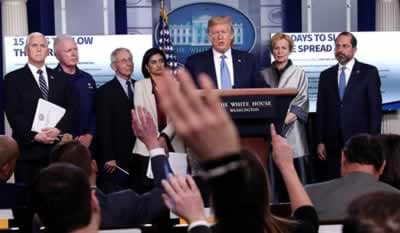 After meeting earlier this month with business executives from a variety of industries, President Donald Trump has announced his plan to “re-open America”. To help plan this re-opening, he has named all major sports league commissioners, along with Robert Kraft, Jerry Jones, Dana White, and Vince McMahon, to an advisory committee. With his “re-open America” plan, Trump intends to see live televised sports return. This would undoubtedly be a huge relief for sports bettors across the country who have been searching desperately for live events to bet on.
After meeting earlier this month with business executives from a variety of industries, President Donald Trump has announced his plan to “re-open America”. To help plan this re-opening, he has named all major sports league commissioners, along with Robert Kraft, Jerry Jones, Dana White, and Vince McMahon, to an advisory committee. With his “re-open America” plan, Trump intends to see live televised sports return. This would undoubtedly be a huge relief for sports bettors across the country who have been searching desperately for live events to bet on.
Valid concerns have been raised regarding the danger Trump’s plan poses to public health, however. Empirical data suggests that re-opening any nonessential businesses right now could lead to a massive spike in COVID-19 transmission, and any sports injuries incurred would divert vital medical personnel away from the already overwhelmed hospital system and its response to the disease. Any plan to re-open the country will need to be tampered with sound advice from medical and epidemiological professionals to ensure that it is conducted in the safest way possible.
When Will Major League Baseball And The NBA Resume After Covid 19?
Major League Baseball is now back in training camp after a four-month hiatus due to COVID-19. The first games are scheduled for July 24. All 30 MLB teams will take part in a truncated 60-game season, with 40 games played against divisional opponents and 20 games played against the same division from the other league (e.g., NL East teams will play AL East teams). There are plenty of other myriad rule changes, including a universal designated hitter, expanded rosters, and a special injured reserve list specific to COVID-19 infection. After the season, the league will hold a traditional 10-team postseason.
The NBA will be returning in late July and early August from a bubble environment at Disney World in Orlando, FL. All 22 teams still in semi-realistic playoff contention will make the trip to Orlando. There will be an eight-game regular season to finalize the standings before the league launches into a full-length 16-team playoff. There will be strict social distancing measures enforced to reduce the risk of infection, and all players and team personnel will be quarantined at Disney for the remainder of the season. There are concerns about rising infection rates in Florida, but officials remain confident the season can continue unabated.
Will The NFL Start On Time After The Corona Virus?
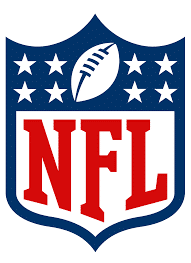 Right now, the NFL is still scheduled to begin its season with the annual Thursday Night Football opener on September 3. Offseason activities have been heavily affected, however, and there are murmurs about internal talks to delay the start of the season. Even if major sporting events are deemed safe prior to the start of the NFL season, teams could need extra time to get in the necessary offseason strength and conditioning work, as well as adequate practice time to be ready for the season.
Right now, the NFL is still scheduled to begin its season with the annual Thursday Night Football opener on September 3. Offseason activities have been heavily affected, however, and there are murmurs about internal talks to delay the start of the season. Even if major sporting events are deemed safe prior to the start of the NFL season, teams could need extra time to get in the necessary offseason strength and conditioning work, as well as adequate practice time to be ready for the season.
A delayed start is probable for both the NFL and college football, and it is possible that games will be played without fans. Outright cancellation of play should not be expected, however. NFL betting is still available, with options for futures bets on division results, who will win the Super Bowl, who will be named league MVP, etc. The NFL Draft will also likely experience its highest volume of bets ever. Sportsbooks already list hundreds of different draft prop bets, and more will likely be added as the event draws closer.
Fight Island – The UFC Pushes The Boundary Of Live Events
UFC President Dana White has taken an interesting approach to contend with the COVID-19 pandemic. White has been reluctant to follow in the footsteps of other leagues in barring fans or suspending play, and instead opted for one of the boldest and most inventive solutions we’ve seen so far during this pandemic. The UFC has now begun hosting fights on a private island where fighters are tested for the virus and kept completely isolated from the mainland. The nickname for this venture is Fight Island.
The island is located off the coast of Abu Dhabi and includes every accommodation you could imagine for athletes. Before being allowed onto the island, fighters must test negative for COVID-19. Once on the island, all fighters and Fight Island staff are subject to stringent security and public health measures to mitigate the risk of widespread infection. They are all confined to a predetermined safe zone that includes access to restaurants, training facilities, various types of recreation, and more.
UFC 251 was the first event held on Fight Island, and by all indications it was a massive success. Fight Island delivered exciting bouts and three gripping championship fights. While the limited number of athletes makes it easier for the UFC to operate in a bubble, the seamless nature of UFC 251 shows that sports in a bubble are possible. Moving forward, it looks like the UFC will be holding events at the Flash Forum Arena on Fight Island for the foreseeable future. Betting lines should still be available for all major UFC events.
WWE Deemed Essential In Florida – What Does That Mean For Bettors?
The World Wrestling Entertainment (WWE) has been declared an essential business by Florida Governor Ron DeSantis. The biggest brand in professional wrestling is authorized to continue to host fights even during the major shutdowns due to the COVID-19 pandemic. DeSantis explained his reasoning being that people who are forced to stay home would be starved for content. Making entertainment an essential business for American society. This means that sports bettors will find betting lines for the major WWE fights at online sportsbooks, giving another avenue for bettors to wager on sports during the shutdowns. This also allows room for other sports to possibly be able to continue in Florida by the same metric.
How Will COVID-19 Affect Sports Betting Revenue?
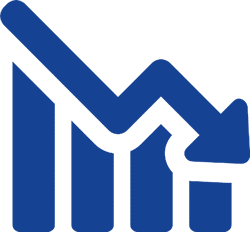 Sportsbooks around the country have begun reporting March sports betting revenue, and the results are alarming, to say the least. Pennsylvania and New Jersey, two of the largest sports betting markets in the country, experienced a roughly 60% decline in betting handle during a shortened March of sports betting. April will see revenues decrease even further as there are almost no remaining major sporting events to bet on. Additionally, every casino in the United States has now closed in response to COVID-19, and every major brick-and-mortar sportsbook along with them.
Sportsbooks around the country have begun reporting March sports betting revenue, and the results are alarming, to say the least. Pennsylvania and New Jersey, two of the largest sports betting markets in the country, experienced a roughly 60% decline in betting handle during a shortened March of sports betting. April will see revenues decrease even further as there are almost no remaining major sporting events to bet on. Additionally, every casino in the United States has now closed in response to COVID-19, and every major brick-and-mortar sportsbook along with them.
With no timeline for when business might resume as normal, and some estimates indicating that large public gatherings might not be safe for another 18-24 months, the first 11 days of March will be the last reliable revenue stream many sportsbooks could see for the foreseeable future. Additionally, the economic havoc caused by the disease could have unforeseen effects on consumer behavior. Consumer survey groups have found that many consumers plan to reduce overall spending on gambling, so even if life resumes as normal within the next few months, revenues could still decline sharply.
Studies On The Impact That COVID Had On Gambling
Many peer reviewed journals made the impact of COVID on gambling a major talking point since 2020. While some focused on how it changed the industry, some looked at isolation and problem gambling habits and others looked at the reduced taboo nature of sports betting. Either way, the main takeaway was that sports gambling online is incrasing and with reduced personal relationships, it’s clear that problem gambling will continue to grow. Needing to focus on regulations to prevent problems, get familiar with sports betting COVID-19 studies to learn more.


